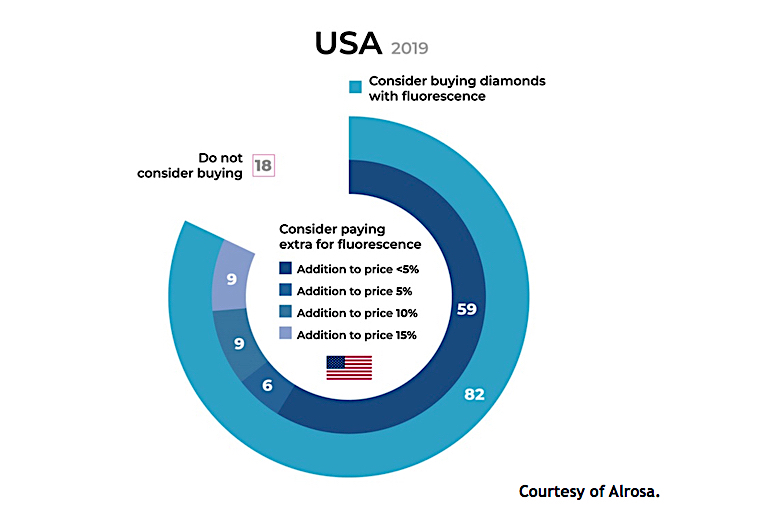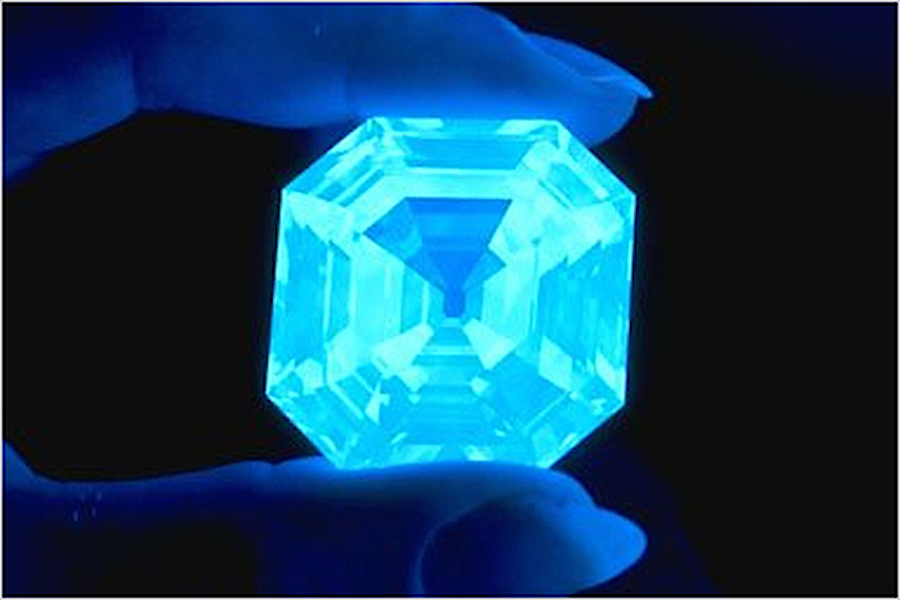Russia’s Alrosa (MCX:ALRS), the world’s top diamond miner by volume, is betting on a new strategy to boost its sales amid an industry-wise slowdown that has hit small companies the hardest.
The state-owned company is now selling naturally occurring fluorescent diamonds mixed with others. At the same time, it’s holding talks with global jewellery retailers about jointly marketing its “Luminous Diamonds” brand, which uses the glowing stones.
Fluorescence,
a bluish glow produced by ultraviolet rays (UV), is a characteristic of 25% to
35% of diamonds, according to the Gemological Institute of America (GIA).
The feature has traditionally been
seen as a negative attribute as it can make a diamond appear “milky” or “oily”
in direct sun or UV light. Alrosa’s marketing efforts are centred on changing
those perceptions.

Glowing diamonds are most common in Russia and Canada due to their proximity to the Arctic, where they are usually found. Brightening up when placed under UV light and in the dark, makes them ideal for a club or party scene and especially fitting with the industry’s intention of directing more marketing towards younger demographics.
GfK market research agency recently conducted a study involving over 4,000 jewellery consumers to determine how they perceived fluorescent diamonds.
The survey revealed that 74% of the respondents in US didn’t know what they were or were poorly informed about them. When educated, however, over 82% of respondents said they would consider buying a diamond with such feature. And almost 60% of customers, mostly millennials, expressed their willingness to pay as much as 15% more to obtain a fluorescent diamond.

About half of all diamonds produced
globally have some fluorescence, but those in which the feature is “strong”
— the focus of Alrosa’s campaign — represent as much as 5-10% of global supply.
Global demand for all types of
diamonds fell between 2018 and 2019, affecting small stones producers the most,
due to an oversupply in that segment that dragged prices down.
Increasing demand for synthetic diamonds also weighed on prices. Man-made stones require less investment than mined ones and can offer more attractive margins.
Big companies have not been immune to the downward trend. De Beers, the world’s No. 1 diamond miner, reported in February its worst set of earnings since Anglo American (LON:AAL) acquired it in 2012.
